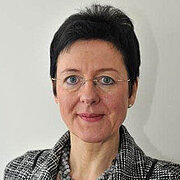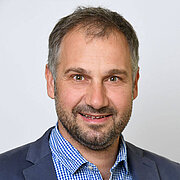Challenges and opportunities of Germany’s inclusion in the Open Government Partnership
In December of 2016, the Federal Republic of Germany joined the Open Government Partnership (OGP), an international initiative that seeks to reshape the relationship between governments and citizens by promoting transparency, civic participation, and the use of new technologies. This way Germany joins 74 other nations who have signed onto this initiative and its inception marks an important opportunity to further the open government agenda in the country. Will Germany’s inclusion in the OGP shake the foundations of policymaking in the country? Which commitments can we expect in the first 2-year cycle? Which areas of Open Government have more potential for growth in the longer term? And looking at the world more broadly, what is the fate of openness amidst the current wave of nationalist containment?
Welcome and introduction:
- Luciana Cingolani (Assistant Professor for Public Administration, Hertie School)
Keynote:
- Beate Lohmann (Director General for Administrative Modernisation and Organisation, Federal Ministry of the Interior)
Panel discussion:
- Beate Lohmann
- Walter Palmetshofer (Project Leader, Open Knowledge Foundation)
- Peter Varga (Regional Civil Society Coordinator Europe, Open Government Partnership)
- Kai Wegrich (Professor of Public Administration and Public Policy, Hertie School)
- Moderation: Zoe Reiter (Senior Project Leader, Transparency International)

Luciana Cingolani is Assistant Professor for Public Administration at the Hertie School. Her research interests lie at the intersection between public management and technology, with a focus on administrative capacity building, transparency and accountability, and the role of eServices and Open Data.

Beate Lohmann is Director General for Administrative Modernisation and Organisation at the Federal Ministry of the Interior. She started her career at the Federal Office of Administration (BVA), and subsequently held several positions within the Ministry of the Interior, including the leadership of the “Better Regulation Unit”, Head of Division O 1 (general matters; Committee for Organisational Issues; modernisation programmes; international cooperation in administrative matters) and Deputy Head of the Directorate-General for Central Tasks. Beate Lohmann holds a Law degree from Cologne. (Image: © Open Government Partnership)

Walter Palmetshofer is an economist by training and has been involved in the domain of Netzpolitik for many years. He is project lead of the Open Knowledge Foundation's EU research project Open Data Incubator (ODINE), the Digitaler Offenheitsindex [do:index], and supervises the Open Data Census. He worked as a system administrator in NYC, before moving to Berlin, where he co-founded a start-up in 2012. (Image: © Open Knowledge Foundation)

Zoe Reiter has worked at Transparency International with partners and Chapters across the Americas and the world to push for greater public accountability since 2008. Currently, she serves as Senior Project Leader on three international anticorruption initiatives. She works closely with over 30 CSO and government partners to tackle corruption and increase citizen oversight of major public contracts, criminal justice institutions, and the delivery of safe and efficient public transportation. Currently she is also contributing to strategies for tackling corruption in the US. Zoe pursues an anti-corruption agenda that seeks greater participation of those communities, individuals and social groups most harmed and marginalized by corrupt governance. She is from New York and educated in cultural anthropology, urban planning, and French and Spanish literature.

Peter Varga joined the Open Government Partnership in July 2016, as Regional Civil Society Coordinator for Europe. He supports civil society organisations across the continent in using the OGP platform more effectively to push for open government reforms and further their advocacy goals. Previously, he worked with Transparency International, supporting national chapters across the Nordic, Baltic and Central European regions, as well as devising the movement’s global internal communications policy. Earlier, Peter developed social enterprises and consulted on non-profit sustainability in emerging markets across Central Europe and Latin America, also piloting the world’s first LGBT venture philanthropy fund. He also gained private sector experience working for a global marketing agency. Peter was Fulbright Visiting Practitioner at Stanford University in 2011-2012, holds an MA in International Relations and European Studies from Central European University, and a BA in Political Science from Yale University.

<link en research faculty-and-researchers profile person wegrich>Kai Wegrich is Professor of Public Administration and Public Policy at the Hertie School. He is a political scientist with research interests in executive politics, regulation, public sector reform and innovations in policy-making.

